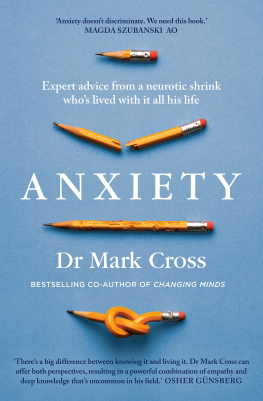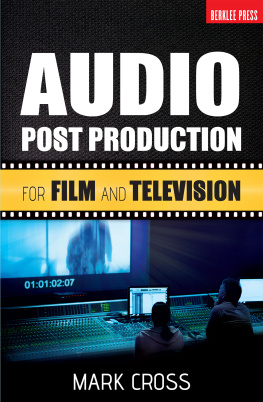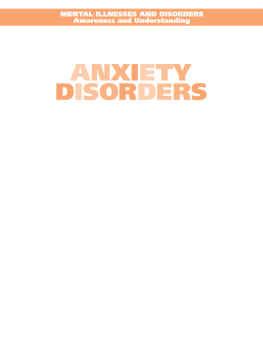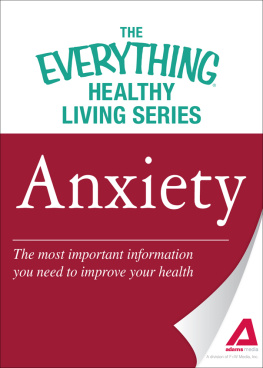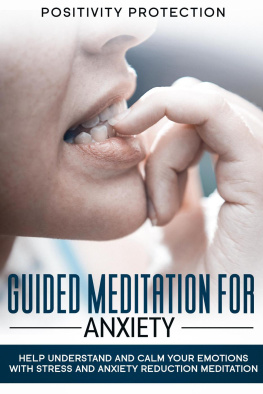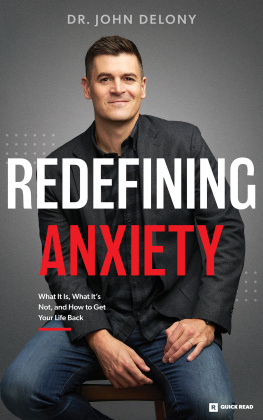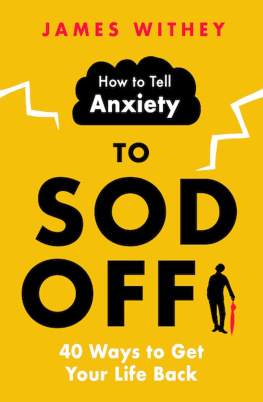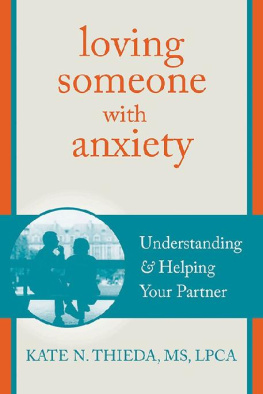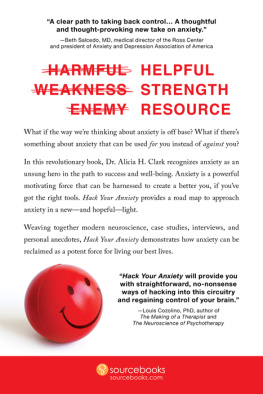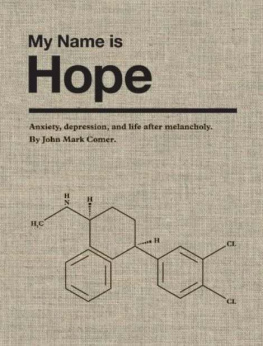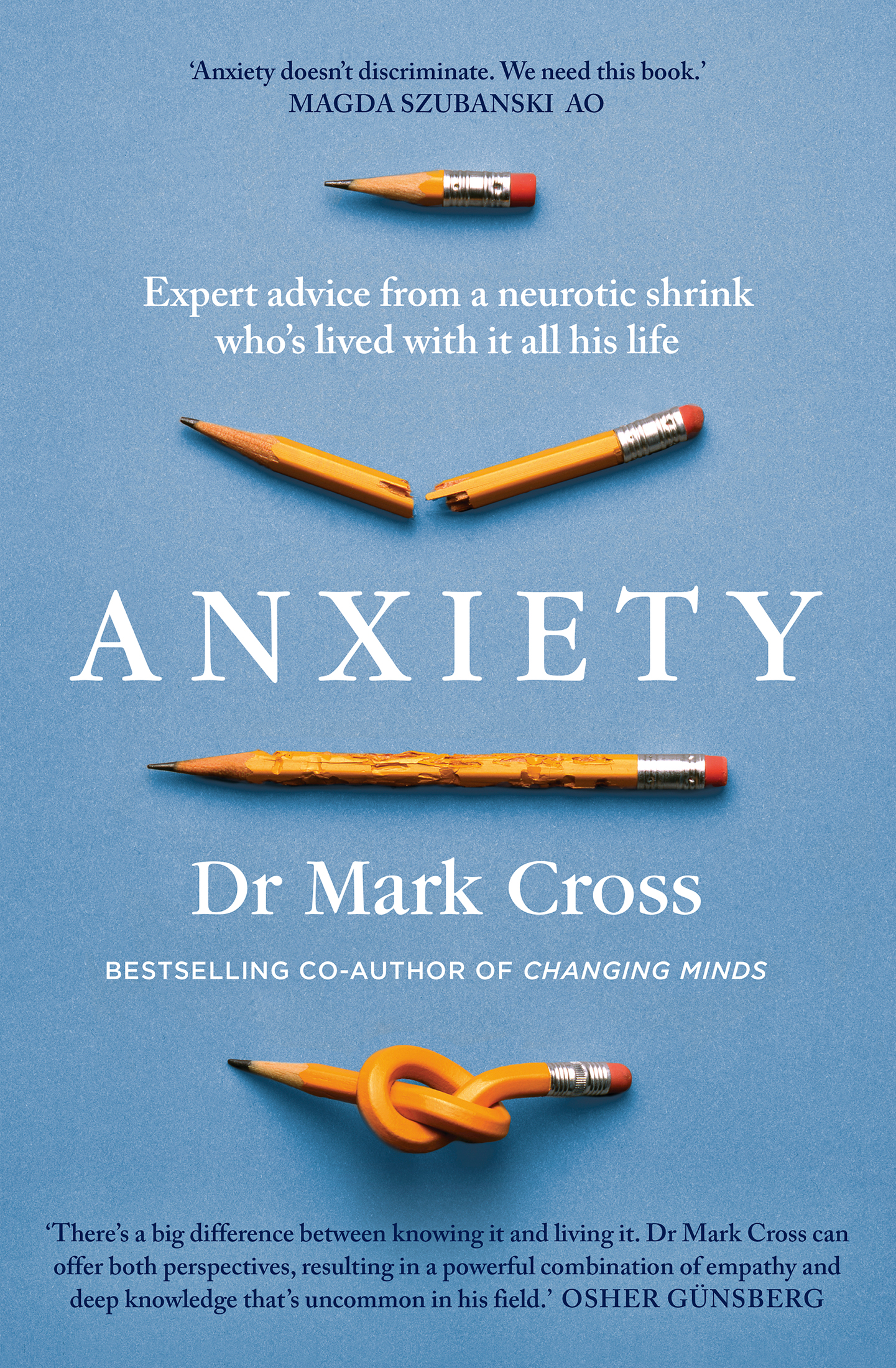Contents
Guide
To Margaret and Joyce,
my mother and grandmother
Contents
We need this book. As I write this foreword my country, Australia, is on fire. As a consequence, anxiety on both national and personal levels will, without question, escalate. So, we need to understand this beast. Although not written in response to this national crisis, Marks book is an expert, deeply compassionate, practical guide to anxiety, in all of its manifestations. It will help us all educate ourselves so we can be more understanding and less judgemental about our own anxiety and that of others.
Anxiety moves in mysterious ways. I, too, have GAD generalised anxiety disorder, along with lashings of intergenerational PolishIrish trauma and know this first hand. Ive muddled my way through life and done okay, working around it. But recently I was forced to take it very seriously. At the end of 2018, after a particularly stressful few years which included my mother dying and the same-sex marriage postal survey (among a host of other shitty things you dont need to know about), I ended up in the neurology ward at The Alfred Hospital in Melbourne with a suspected stroke. The chief symptoms were tingling fingers and aphasia the inability to speak. Not great for someone who makes their living from talking.
My speech would come and go. It was, frankly, terrifying. Late one night, during a speak phase, I sat chatting with one of the young nurses these people are the true angels and she said to me, We see this every single day neurological change brought on by stress. I was later diagnosed with stress/hormone induced migraine. Phew!
But this serves to illustrate how we ignore and underplay our stress at our own peril. Mark really helped me get through this unnerving time.
The other day, Mark and I were talking about how Australia will respond to the horrific bushfire disaster. I expressed my concern that the word resilient is everywhere and that people may feel pressure to appear strong. Mark pointed out that there is also a danger it will slip into denialism. Another reason it is crucial that we understand properly the mechanisms of stress, trauma and anxiety.
This is a brave book because Mark has removed the protective armour of his professional standing and revealed his own vulnerability. He is not speaking from on high, as some invulnerable medical lord talking down to the wounded masses. He is one of us: what is called, the wounded healer; someone who can help others because he knows from the inside how it feels.
And we know that Mark is not the only physician who needs to heal thyself. Perhaps his book may help in the way medical practitioners are trained, getting real about their own struggles and dealing with them appropriately.
Anxiety does not discriminate. It cuts a swathe through every level and facet of our society: men, women, children, old, young, rich, poor, black, white, and all levels of physical and educational ability. We really are all in this together.
Marks thoughtful book provides a wonderful social context for anxiety. This will give us insight not only into the external factors that play into our own conditions, but also help us walk a mile in the shoes of others. Not only will this lift some of the burden of personal shame, but perhaps it will also help us think about ways to make the world a fairer, kinder place.
Lastly, this book is really, really practical. The medical system can be a daunting, convoluted maze and having some insider intel on how to work the system is invaluable.
I, for one, am very grateful.
January 2020
This book is a brave and eloquent exposition of Dr Mark Crosss personal experience of anxiety, which, ironically, has formed such a solid and compassionate base for his professional practice as a psychiatrist.
Marks candid sharing of his own vulnerabilities and struggles supported and amplified by equally courageous narratives from consumers, friends and colleagues, creates an egalitarian, erudite and compelling account of the many ways anxiety can manifest itself and the pain and suffering it can cause.
His ever-present consumer advocacy is palpable throughout the book he is a psychiatrist of the people and for the people. He does not set himself apart. The genesis of a profound trust in his patients and colleagues is tantamount to the success of his practice.
Marks emotional availability invites an honest presence in the reader as he explores with generous and informed empathy the markers that have led to this pervasive global condition.
His inclusive, encouraging and objective approach precludes stigma.
Providing us with an accessible historical journey through the evolution of diagnosis and treatments, Mark leads the reader to also consider and explore the role society, workplace and government has in the exacerbation and stigmatisation of anxiety (and mental health issues in general). He personalises those concepts through self-revelation, using his own suffering of anxiety compounded by his family history and his sexuality.
Anxiety is a potent and liberating read, providing useful information on the causation of anxiety, how to access help, navigating the health system, treatment and medication options, managing the workplace, evolving a wellness plan and the importance of self-care and self-determination.
It is smart, sassy and a bit controversial much like its author.
Mark provides a balanced, informative and heartfelt insight into the causes and treatment of this universal condition in a bid to advance the knowledge base for all consumers and their families.
The future success of individuals being treated for anxiety and other mental health issues lies not only in receiving timely non-judgmental treatment but also in being well informed and a part of the decision making at every level regarding that treatment. Choice and control should remain as much as possible with the consumer, forming part of their recovery solution.
We support and applaud Mark for his brave, honest account and his passion and dedication as he shines a light on the struggles associated with having anxiety. We applaud also the courage and determination of the people who shared their personal journeys. Through their narratives they are all actively part of the solution to diminish stigma, defuse fear and promote hope.
Mark, through his kind generosity of spirit has shown us that together we can engineer a world where awareness and inclusion precludes stigma.
January 2020
Anne Mortimer is a veteran of forty years in healthcare. She has always strongly advocated for reducing the stigma that has often been associated with mental health.
Mark Cross is nervous. That was the opening sentence of an article in The Sydney Morning Herald about an ABC TV documentary series called Changing Minds that I featured in. And it pretty much sums it up, because I suffer from anxiety. Oh, and Im a shrink.
For me, anxiety is the red-eyed Yeti sitting on the edge of my bed or hovering above me as I, panic stricken, shift from sleep to full wakefulness in the dead of night, a brute whose burning gaze bores into my inner being. I feel it during bad times, waiting to burst through like a beast from a horror novella. At other times, it seems less angry, appearing to want to hold me and be understood. Ive experienced these night terrors since the age of four, and during stressful times they become more frequent.
I was an anxious child; my mother has anxiety; her mother was on medication for anxiety. My anxiety was compounded by early self-awareness that I was different. As much as I fought it and tried to be normal, I finally acknowledged to myself in my early teens that I was gay. Not that I came out then coming out to myself was hard enough! I waited another decade before I confirmed it to my family and friends. Homosexuality at the time was illegal and considered a perversion. Further, homosexuality was categorised as a mental illness, so when I was training as a doctor, I had to hide this part of me, my identity. This took its toll on my health, and certainly helped cause my neuroses to worsen. There was no one to talk to, no one offering advice. It has taken me a very long time to adjust to this lack of support when I was younger; in fact, Ive identified it as a major perpetuating factor in my anxiety until fairly recently.
Next page
